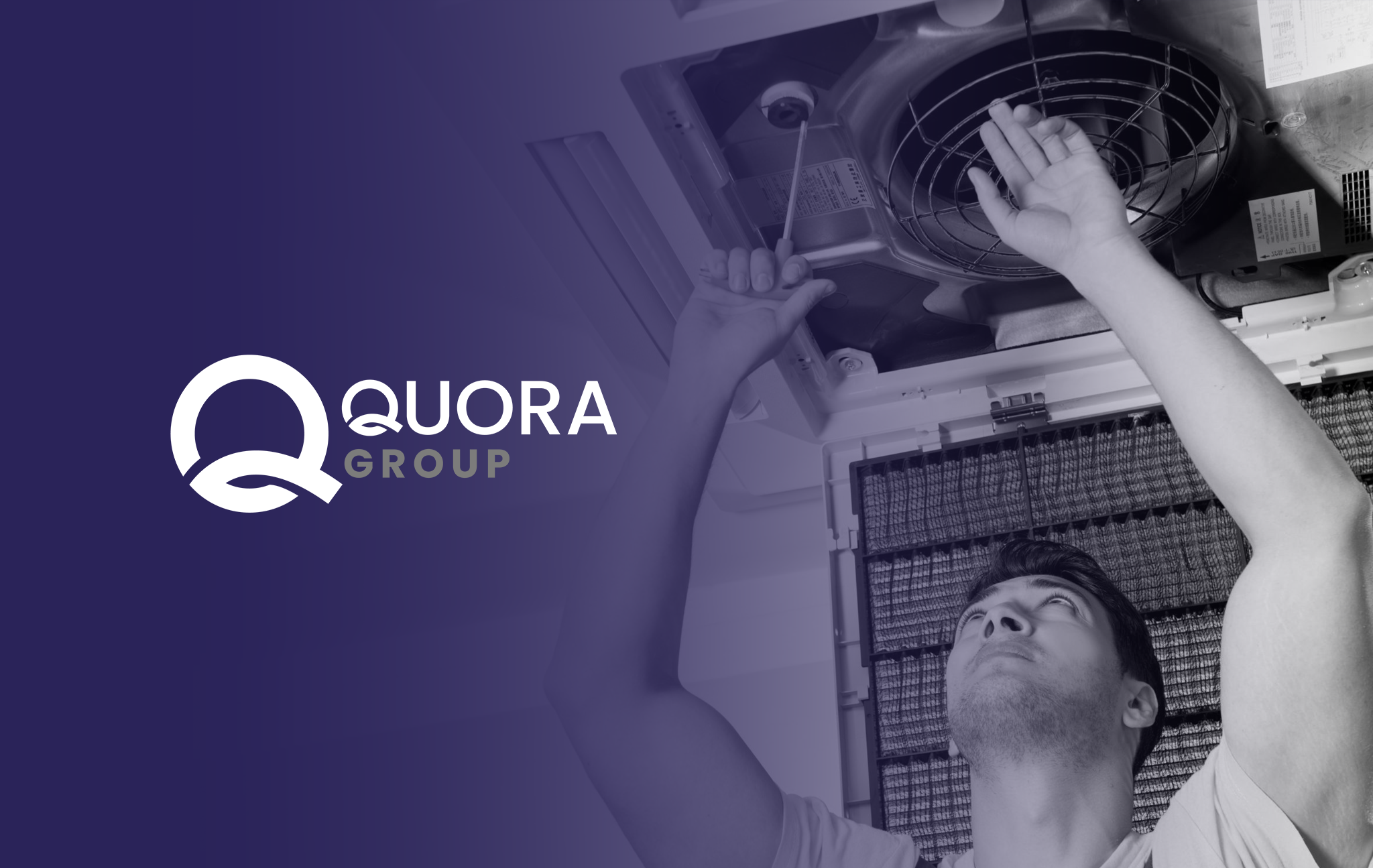Air conditioning is primarily known for its ability to cool a space. Due to our temperate, colder climate, the UK has not experienced a similar uptake in domestic A/C compared to households in warmer countries. However, in the commercial sector, air conditioning is a common sight – one that is increasing year on year as temperatures rise.
The amount of space serviced by air conditioners has risen sharply – Carbon Trust estimated the amount of commercial floor space cooled by A/C rose from 10% to 40% between 2019 and 2020 alone. In the latest government report entitled ‘Cooling in the UK’, the UK used 532ktoe (kilo tonnes oil equivalent) of energy on cooling, equivalent to 6,187GWh.
But air conditioning doesn’t just cool. Most systems can also provide heat by reversing the flow of the refrigerant within the system, extracting cold air outdoors whilst pumping in warm air. Air conditioning units can be installed in a multi-split system that allows for different units to provide different temperatures, which means individual rooms can have certain temperatures within the same property.
As more commercial spaces invest in air conditioners for cooling, is it also worth exploring the heating options they present? With gas prices on the rise and many businesses choosing to utilise other forms of heating, is the air conditioner you may already have in your premises worth using?
Using air conditioning as heating
Compared to other forms of heating like a gas boiler, air conditioning presents both benefits and challenges:
Benefits
- Air conditioning is more affordable than the installation of a brand new central heating system, so if your premises needs its central heating system replaced, air conditioning may be a cheaper alternative.
- AC units do not produce any ash or dust and their fire safety ratings are high, making them a generally safe choice.
- Air conditioning heating provides near-instantaneous warmth and are more efficient than alternative electric heating. For example, a 1kw electrical heater uses 1kw of electricity to produce 1kw of heat. Air conditioning units can offer more than quadruple that efficiency. For some businesses that run electric heating systems such as air curtains, an AC system could potentially save you thousands of pounds.
- Air conditioning systems can be designed flexibly around the needs of your business. In commercial premises, multiple systems generally need to accommodate for multiple zones of activity. In an office space, for example, you may need a system that allows the meeting rooms to be set to a certain temperature on-demand, whilst the larger office space is heated continually. Air conditioning gives you that flexibility.
- Air conditioning units are space efficient and nearly silent, making them ideal for office spaces or other communal areas.
Challenges
- As an air-based heating system, larger commercial spaces can cause air conditioning systems to struggle with efficiency and much of the heat can be wasted.
- The installation requirements of commercial air conditioning systems are typically far more extensive than domestic alternatives – which means you’ll most likely experience disruption during installation.
- Air conditioning units must be serviced to maintain efficiency, which means hiring a team like ourselves to come and carry out servicing and any repairs.
- Air conditioning doesn’t create hot water, so you’ll need a separate system for any hot water requirements.
Building considerations before investing in AC
Commercial buildings require a well-specified HVAC system to be efficient. HVAC stands for heating, ventilation and air conditioning, with most systems incorporating heating separately to air conditioning. But why is that?
Many commercial buildings contain more ventilation than a standard domestic residence due to Part F of the Building Regulations, which governs all types of ventilation such as extract ventilation, purge ventilation and whole-building ventilation.
In general, commercial premises need both extract ventilation for removing water vapour and pollutants and whole building ventilation to allow fresh air inside. Purge ventilation is more specific and is for when large concentrations of pollutants are released suddenly, such as via a paint spray gun.
Commercial units are often poorly insulated compared to domestic homes. Just 10% of commercial property met energy efficiency standards in 2022, demonstrating a clear challenge for businesses looking to heat their property.
All of these building factors combine to demonstrate a clear issue when considering air conditioning as a heating format in your building. To summarise, because commercial units are typically well-ventilated, lack insulation to trap heat and are usually far larger by square foot than an average home, air conditioning may struggle to offer the efficiency required to make it viable.
Another consideration that bears repeating is that if you already have air conditioning fitted in your premises but only use it to cool, it may be more viable than you thought as a heating system considering the rising price of gas – but only if you’re aware of the challenges above and run your AC in rooms or spaces that maximise its efficiency.
Of course, many of these challenges can be mitigated by the right advice and expertise. Our team here at Quora can visit your site, assess your requirements and design an HVAC system that maximises your efficiency. Contact us today to learn more.
